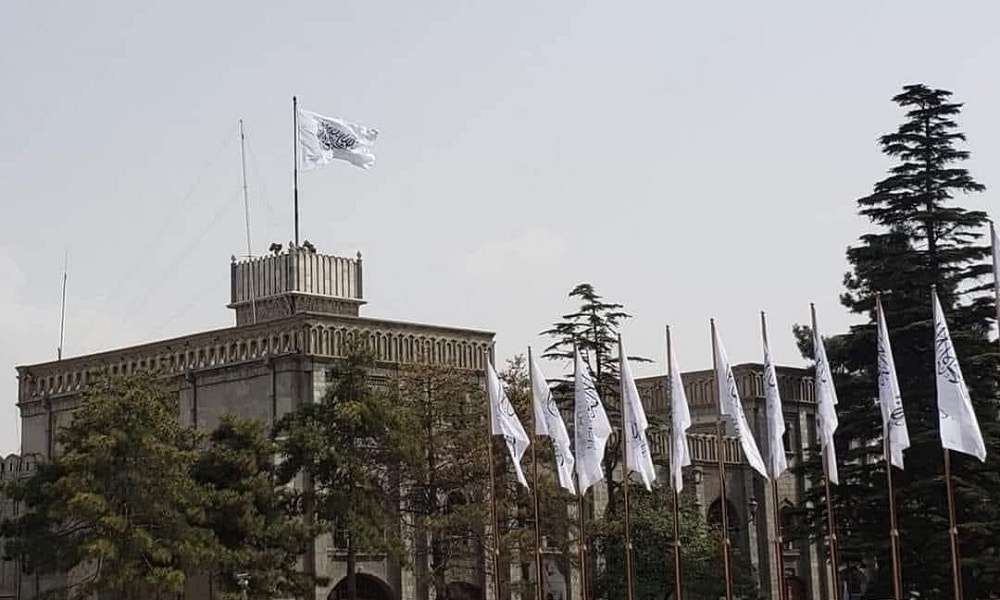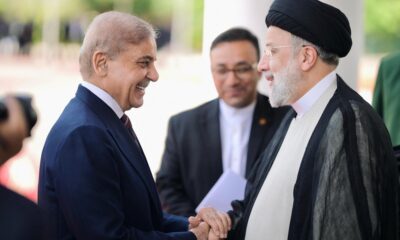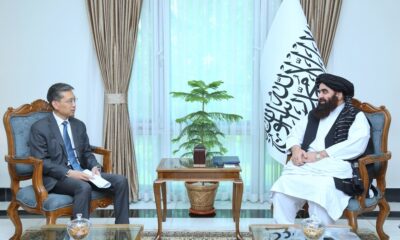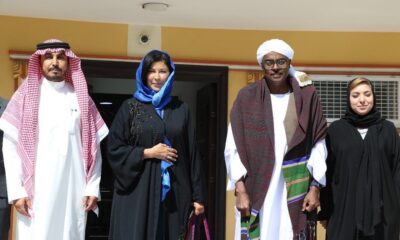Latest News
1400: A tumultuous year for Afghanistan politics

From the collapse of intra-Afghan peace talks to the Islamic Emirate’s return to power, 1400 was filled with major political events.
On 11 Hamal, (March 31) a crucial summit on peace was scheduled to start in Turkey, a meeting that was at the time dubbed the second Bonn conference.
However, the summit failed to take place due to disputes within the ranks of the former government and a disagreement over the agenda.
Peace negotiations between the IEA and an Afghan delegation in Doha also failed to provide results and collapsed in the month of Saratan (July).
A visit to Doha by former Afghan president Hamid Karzai and his delegation also ran into problems and was called off just one day before the collapse of the former government.
At the time, sources from the presidential palace said the delegation had beern barred from travelling by then president Ashraf Ghani.
On 24 Asad (August 15), the Western-backed government collapsed without warning after 20 years. Ghani and many other high-ranking government officials fled the country just hours before the IEA swept into Kabul and took over.
Ghani’s desertion was confirmed and announced by former CEO Abdullah Abdullah and days later it emerged the former president had flown to the UAE.
As IEA forces entered the presidential palace, its leaders celebrated what they called a victory against the United States and the West.
However, the world was shaken by the Republic’s sudden collapse.
What followed was a chaotic evacuation process of foreign troops, diplomats and foreign workers – along with tens of thousands of Afghans.
Since then, world alliances and international organizations such as the United Nations, the European Union and NATO have held emergency meetings on Afghanistan. The Organization of Islamic Cooperation (OIC) also held a meeting on Afghanistan in Pakistan.
The UN has since scrambled to help ward off a major humanitarian crisis in the country, while the United States has defended its position after having come under fire for the way it handled the situation.
For the IEA’s part, it has appealed to the international community to work with them and the new order immediately brought about a semblance of security.
Latest News
Girls’ education is a ‘vital issue’ for Afghanistan: Karzai

Former president Hamid Karzai said in a meeting with Iran’s ambassador and special representative, Hassan Kazemi Qomi, that education of girls was a “vital issue” for Afghanistan.
Karzai said he appreciated Iran’s cooperation and its standing with the Afghan people, especially Iran’s contributions to education in Afghanistan.
During the meeting, Karzai said peace and stability in the region are in the interest of all regional countries.
Latest News
Uzbekistan’s humanitarian aid arrives in Balkh

A shipment of humanitarian aid from Uzbekistan was handed over on Thursday to the local officials of Balkh province in the trade port of Hairatan.
Local authorities said the aid, which includes flour, oil, wheat, sugar and meat, has been handed over by Uzbekistan’s Surkhandarya governor to the governor of Balkh.
The governor of Surkhandarya stated the purpose of sending this aid was to support the people of Afghanistan and stressed the need for the development of good relations between the two countries.
Latest News
Afghanistan’s problems caused more damage to Pakistan than 3 wars with India: Durrani

Islamabad’s special envoy for Afghanistan Asif Durrani said on Wednesday that Pakistan has suffered more due to Afghanistan’s internal situation than Pakistan has suffered in three wars with India in terms of blood spilt and finances drained.
Durrani said at a one-day International Conference titled “Pakistan in the Emerging Geopolitical Landscape”, which was organized by the Institute of Strategic Studies Islamabad (ISSI) and the German Friedrich Ebert Stiftung (FES), that over 80,000 Pakistanis died in the two decades of the War on Terror and that his country was still counting its dead and injured.
“After the withdrawal of NATO forces, it was hoped that peace in Afghanistan would bring peace to the region. However, such expectations were short-lived,” he said.
He also stated that attacks by the Tehreek-e-Taliban Pakistan (TTP) militant group on Pakistan’s border areas increased by 65 percent, while suicide attacks increased by 500 percent.
“The TTP’s enhanced attacks on Pakistan while using Afghan soil have been a serious concern for Pakistan. Another worrying aspect is the participation of Afghan nationals in these attacks,” he said.
Durrani also said Pakistan had suffered geopolitically since the Soviet Union invaded the neighboring country.
“The post-9/11 world order has negatively impacted Pakistan. Apart from losing 80,000 citizens’ lives, including 8,000 law enforcement agency personnel, the country’s economic opportunity cost is estimated at $150 billion,” Durrani said.
Talking about the future outlook for Pakistan in the regional context, Durrani said that while “our eastern neighbor is likely to continue with its anti-Pakistan pursuits, the western border poses an avoidable irritant in the short to medium term.”
However, he said Pakistan can overcome its difficulties with Afghanistan, including the TTP challenge.
-

 Latest News5 days ago
Latest News5 days agoPakistan’s frontiers minister stresses ‘dignified’ return of Afghan refugees
-

 Regional4 days ago
Regional4 days agoIranian president lands in Pakistan for three-day visit to mend ties
-

 Latest News3 days ago
Latest News3 days agoRashid Khan named AWCC’s brand ambassador
-

 Climate Change5 days ago
Climate Change5 days agoMassive river flooding expected in China, threatening millions
-

 Latest News5 days ago
Latest News5 days agoChinese keen to invest in Panjshir-Kabul water conduit project
-

 World5 days ago
World5 days agoTwo Japan navy helicopters crash, one body found, 7 missing
-

 Sport4 days ago
Sport4 days agoKolkata beat Bengaluru by one run in IPL as Kohli fumes at dismissal
-

 Sport4 days ago
Sport4 days agoACL: Aino Mina 3-0 Istiqlal Kabul; Attack Energy 3-0 Khadim



























